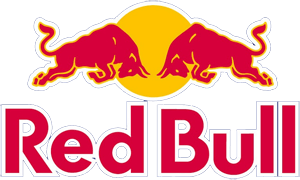Date: 15th June 2017
Many years ago I was interviewing for a job I really, really needed, and the interviewer asked me, “So, you’ve got some strengths here, but what’s your greatest weakness?” I said something about being overly concerned with detail (surely that was the right answer for a job involving tremendous amounts of painstaking detail?) because that’s what I thought the answer was: A strength camouflaged as a so-called weakness. I was fully bullshitting the interviewer to get the job of course, and we both knew it based on my inability to sit still for more than six seconds, but I got the job because I really wanted it, and because I knew something about the subject matter. If I’d been honest I would have said something like, “I basically don’t work until there’s a deadline breathing down my neck, the building is on fire, and financial ruin is looming.” And I’d have thought, “But in that situation I’m your guy for sure!” And I’d have believed that was a strength, because not many people can work well under those conditions, right? The trouble is that most of the time my work environment isn’t on fire…
As I get older I see that some of the things I’ve always viewed as my strengths aren’t. I do work well under pressure that would kill many people, and that is great for high-stress environments. It’s less useful for doing many of the things like long-term (anything past tomorrow being long term) planning that may add substantially to your enjoyment of day-to-day life. And if something doesn’t need to get done right away it was usually pretty much irrelevant to me. This focus works well until I’m buried under ten critical things and my kids need dinner and I’m leaving for a two-week trip and don’t even know where my clothes or gear are. Working well under pressure isn’t a strength when you only get work done under pressure… I had to learn different patterns.
Another “strength” I’ve relied on a lot in my life is what’s called “onsight ability” in climbing. “Onsighting” a route means a climber walks up to a very difficult technical rock climb, and with no pre-knowledge of the holds (but with a rope for safety) climbs to the top without falling off. It’s an exercise in on-the-fly thinking, athletic problem solving done while hanging on holds smaller than a deck of cards stuck to the wall. The “pump clock” is on from the moment you step off the ground until you either reach the top or fall off with your arms too pumped to hang on. One of the reasons I’ve competed relatively well in climbing (and other sports) is that I onsighted/figured things out well on the fly, at least compared to the many athletic head implosions I’d see around me. I do the same thing with a lot of stuff in my life, from presentations to writing–I sit down and figure it out, onsight. The trouble is that a lot of things in life get better results with pre-planning and well thought out attack plans. My ” strength” is only a strength in the right environment. “Onsighting” something like the traffic rules in France is exciting, and I pulled it off with accident-free style, but it was not the best way to deal with that roundabout for me, my passengers, and I wish to extend a sincere apology to France for my behaviour until I understood the priorete a droit that is clearly outlined in the driving regulations I never read. The reason I was good at onsight climbing is that I only knew how to climb onsight.
With work I’ve learned to overcome or at least manage my “abilities” to work under pressure and problem solve on the fly.
So what I’ve always viewed as two of my best “strengths often weren’t. How about my weaknesses?
One of my weaknesses is literally that I’m relatively physically weak. I never won much growing up because I had arms like twigs, didn’t put on muscle mass even after puberty, and couldn’t bench my own weight until well into college despite significant time in the weight room. To combat this I trained harder than anyone I knew, not to look a musclehead because, well, that wasn’t going to happen for sure, but to get stronger at DOING. While a lot of my friends wanted to look more muscular or “built,”, I figured out pretty quickly that I didn’t really have that option. So I focused on doing more, and doing better functionally. Kayaking cleaner lines. Climbing more. Running harder. I still went to the gym and got stronger, but without the motivation of looking like Charles Atlas my motivation was pure performance. Eventually I did get strong compared to the general population and most recreational climbers, but honestly I’ve never once been in top half of the field in in terms of pure strength at a competition, even at those comps I’ve won. But I can move, and never wasted an hour doing bicep curls. I got strong at useful things. And, because my strength gains are hard-earned, I’m damn motivated not to lose what little I do have, and have kept it. This morning I hit the gym and benched close to my body weight for ten times. Boring to some, but that’s 30 years of time in the gym. The “weakness” drove me to perform. I have also been injured a lot less than some other athletes my age, and I think that’s also due to my body composition. I’m not a stick today, but I could still blend into a group of them.
Another “weakness” I live with is have high anxiety levels. I stress out, ruminate, and generally worry about life way too much. When I’m paddling or flying or climbing I’m often stoked, but I’m also generally worried. I worry about what’s going to happen next when I glide into a big mountain, I worry about what my guest is going to do if his crampons catch while I’m guiding, I worry about what would happen if I got swept left when I should have gone right in a big kayaking drop. I have dry-heaved in eddies worrying about all the things that could go wrong. I have been so envious of some of my friends who just roll along in dangerous places, comfortable and serene. I’m like that when operating in an area of high competency (walking with my kids, on a long glide between mountains) but when the stakes are high I get worried, and stay worried. Attentive, switched on, but driven by anxiety and fear. Over the years I’ve had dozens of friends die and more live, and one thing I notice over and over is that those who are worried or at least paying attention in the mountains end up making good decisions more often. Someone who runs around near a big drop rather than walks clearly doesn’t fear the drop, but should. Being concerned and aware of the bad outcomes is the key to avoiding those outcomes. One of the best guides I know is my partner, Sarah Hueniken, and she can hold her high levels of concern and worry for hours and days at a time. I recommend her a lot as a guide because of her worry. Likewise, my anxiety is, oddly, a strength.
Again, as I get older and examine the arc of the awesome ride I’ve been privileged to experience I realize that what we see as strengths often aren’t, and what we see as weaknesses may actually be legitimate strengths if we understand how our minds work, and where we are going to perform well. I have spent years training my brain to do better at “boring” tasks and made real progress, but the reality is that I will do better in high-stimulus environments with deadlines and high stakes–filming, presentations, sports, guiding, high-consequences environments where my anxiety and ADD combine in useful ways. My weaknesses help keep me, my guests, and partners safe.
As I think back to that early job interview I remember that the magazine I was interviewing for had lost previous editors because they couldn’t deal with the mayhem of high-stress deadlines. I’m good with the craziness of managerial deadlines under pressure. I wasn’t going to be a great copy editor, ever, but we had good people for that. I wasn’t afraid to call writers, or rather I was, but I feared failure more… But that’s another post.
Posted in: Blog
Just stumbled on your website looking for flying information, although I have known of you as an ice climber for years! Procrastination, twiggy physique, ADHD and anxiety… reading this is like looking in a mirror! Thanks for sharing this stuff.
I'm more than happy to hear your thoughts on what I've written. Please note that all comments will be moderated before publishing. Thank you for joining the conversation.



